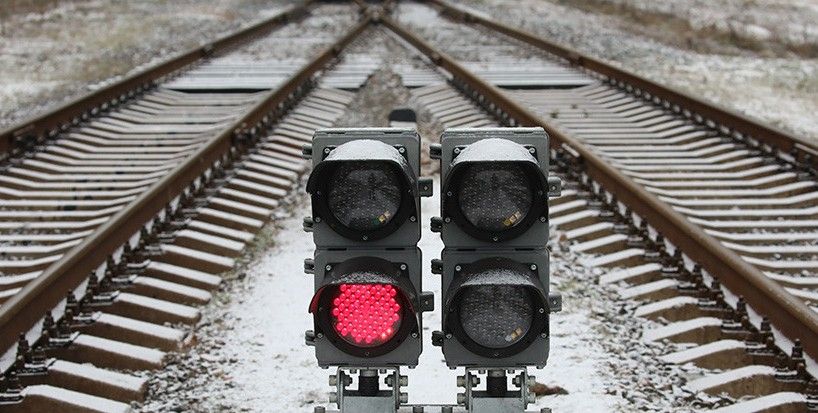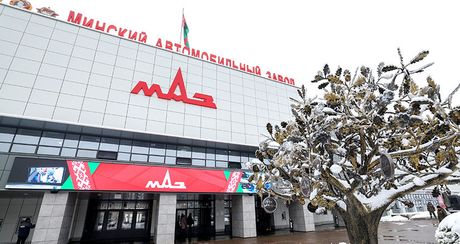Belarus bans merchandise transit by rail from Lithuania
11:31, 3 February

Belarus is introducing a prohibition against the transit of a group of commodities from Lithuania by rail, BelTA learned from Press Secretary of the Belarusian Ministry of Foreign Affairs Anatoly Glaz on 2 February.
- Share on Facebook
- Share on VK
- Share on Twitter
The official reminded that Lithuania had banned the transit of Belarusian goods via Lithuanian ports. Belarus had repeatedly suggested arranging consultations in order to address issues within the legal framework but Lithuania had not accepted the dialogue. According to the press secretary, guided by the principles of good neighborhood and unwilling to inflict damage on the long-suffering Lithuanian nation, Belarus had refrained from drastic response measures in connection with the persistent hostile actions of the reckless Lithuanian leadership.
“Belarus cannot ignore this hybrid attack and is forced to take response measures it had warned about before. We've decided to prohibit transit shipments by rail of oil products, chemical and mineral fertilizers, which are transported from Lithuania and were loaded at stations of Lithuanian Railways. About 1.5-1.6 million tonnes of such cargoes worth over $1 billion is transported across the territory of the Republic of Belarus every year,” the press secretary of the Belarusian Ministry of Foreign Affairs said.
Belarus informs all the interested parties four days before the decision is to come into force. Upon Belarus' initiative this conventional prohibition will be announced by the Directorate of the CIS Railway Transport Council and will come into force on 7 February 2022.
“It will take a long time to calculate direct losses of the Klaipeda port, Lithuanian Railways, and other parties involved in the Lithuanian supply chain but it is already clear that the losses are measured in hundreds of millions of euros. Multimillion losses will also be caused as part of the lawsuits Lithuania already faces and due to penalties. Belarus retains the right to take further economic actions, including together with its partners. Lithuania's transit infrastructure may be wrecked as a result,” Anatoly Glaz stressed.
The Belarusian Ministry of Foreign Affairs regrets the fact that many thousands of Lithuanian Railways employees, representatives of the private sector, and ordinary Lithuanians will incur serious losses. “History has demonstrated that Belarus has always been and will be on your side and political puppets will be unable to completely sever our cultural, historical, and business ties. In the current situation you can count on our understanding, however, all the complaints should be addressed to the political elite that holds on to power in Lithuania today. The Belarusian side remains open to a dialogue and is always ready to hear out proposals of the Lithuanian government regarding the resolution of all issues by legal means,” the official stressed.
On 1 February Prime Minister of Belarus Roman Golovchenko made a few comments about the measures the Belarusian side intends to implement in response to Lithuania's decision to stop the transit of Belarusian potash fertilizers. Roman Golovchenko said: “Indeed, the Lithuanian side no longer lets in our trains, which transported potassium to the Klaipeda port for transshipment. The response measures will be harsh. As we say, we will respond symmetrically. The decision has been made, it will affect railway traffic originating from Lithuania's territory.”
The head of government stressed that the Belarusian side had suggested a dialogue to Lithuanian colleagues in order to discuss the matter. He said: “We put forward a proposal to arrange consultations and determine our future mutual relations within the legal framework. We believe that by making the unilateral decision Lithuania violated the intergovernmental agreement on railway transport not to mention the documents that regulate transit for landlocked countries. We've suggested an option. If they don't respond, we will enforce the response measures within the next few days.”
In his words, Belarus has been preparing for the situation for a long time and rerouting Belarusian shipments. “Due to the longer logistics leg to the Russian Federation our producers have lost a bit of the profit margin but rising global prices will compensate for it. So, essentially we've lost nothing but the Lithuanian economy has. Moreover, we will recover the penalties we are entitled to due to the termination of the shipment contracts by the Lithuanian side. The relevant lawsuits have been filed. We will also recover lost profits. Those are large sums of money,” he noted.






